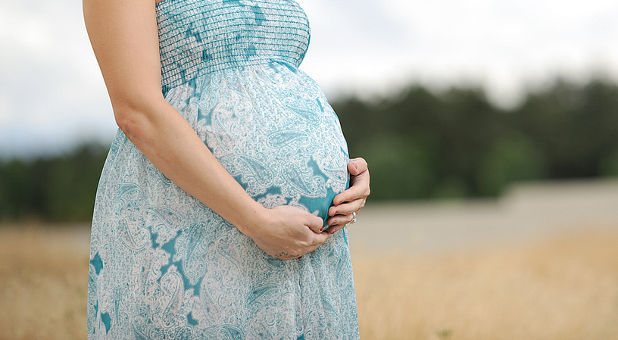![Oocyte cryopreservation allows women to postpone pregnancy. [Illusive Photography]](http://www.jstudentboard.com/reporter/wp-content/uploads/2014/09/JSR_Sept27_PREGNANT-300x165.jpg)
Colloquially known as “egg freezing,” the process is a type of in vitro fertilization that does not happen right away. Women are injected with hormones to stimulate ovulation of multiple eggs which are surgically removed and immediately frozen through a process of slow-cooling or flash freezing. Once the woman is ready to have children, the eggs are thawed, fertilized, and transferred to the uterus.
Though complicated, egg freezing offers what seems to be a miracle to women who are feel forced to choose between their careers and their biological clocks. Having a child can interrupt careers, schooling, and even one’s personal life, yet the quality of eggs can decrease after the age of 38.
“I plan to have a career in the medical field, and that just doesn’t give me room to have a child and care for it in my early thirties. However, it makes me really sad to have to choose between having a family and having my dream job,” said Aimiel Casillan, a Valencia High School (VHS) senior, to JSR.
“I am definitely considering egg freezing,” said Casillan, “because this way, I can have both.”
Moreover, freezing eggs gives a second chance to those who could be rendered unable to have children, such as those who must take medicine that makes them infertile.
“What if a woman is diagnosed with cancer but still wants to have a baby? She can freeze her eggs. What about a woman who freezes her eggs before she goes into combat just in case something happens to her? If she dies, her husband can still use her eggs,” said VHS teacher Beth Blok in an interview with JSR.
She continued, “More women would do it if it wasn’t so invasive.”
As Blok observed, the cost and invasiveness of the procedure still stands as a barrier to many women. The procedure ranges from $9,000 to $14,000 and even then, does not guarantee success. Furthermore, women must dedicate months to monitoring their health and taking injections. Other lower-cost alternatives exist, such as embryo freezing, adoption, and artificial insemination.
While egg freezing has opened new doors for women who aren’t ready for kids, others don’t have much interest.
“Because I’m planning for a very stressful career that doesn’t give me much room for one, I can see the rationality in freezing your eggs,” said Mara Subbotin, a VHS senior who plans to become involved in law enforcement, to JSR. “But would I choose to do that? Probably not.”
She continued, “I want kids, always have. But I’m choosing to have a life in which I’m serving my community and protecting them. If giving up kids means I can protect others, I’d give it up.”
According to the US Department of Labor in 2013, 57.2% of women are in the labor force, with over three quarters of them working full time. More opportunities are opening to accommodate them, and egg freezing should be taken into serious consideration.

